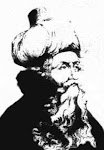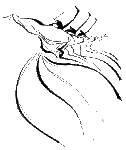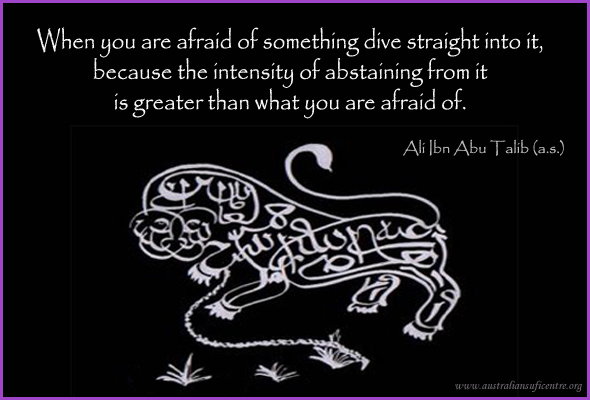Sheikh Muhyiddin Ibn Arabi: 1165 - 1240 AD
'Mystic, philosopher, poet, sage, Muhammad b. 'Ali Ibn 'Arabi is one of the world's great spiritual teachers. Known as Muhyiddin (the Revivifier of Religion) and the Shaykh al-Akbar (the Greatest Master), he was born in 1165 AD into the Moorish culture of Andalusian Spain, the centre of an extraordinary flourishing and cross-fertilization of Jewish, Christian and Islamic thought, through which the major scientific and philosophical works of antiquity were transmitted to Northern Europe.' (excerpts taken from Ibn Arabi Society's website)
The Muhyiddin Ibn 'Arabi Society
*****************************
"The movement which is the existence
of the universe is the movement of love. "
Ibn 'Arabi, Fusûs al-Hikam
"It is He who is revealed in every face,
sought in every sign,
gazed upon by every eye,
worshipped in every object of worship,
and pursued in the unseen and the visible.
Not a single one of His creatures
can fail to find Him in its primordial
and original nature."
Ibn 'Arabi, Futûhât al-Makkiyya
"If the believer understood the meaning of the saying
'the colour of the water is the colour of the receptacle',
he would admit the validity of all beliefs
and he would recognise God
in every form and every object of faith."
Ibn 'Arabi, Fusûs al-Hikam
And this has to be my all time favourite of Ibn Arabi's works....
"O Marvel! a garden amidst the flames.
My heart has become capable of every form:
it is a pasture for gazelles
and a convent for Christian monks,
and a temple for idols and the pilgrim's Kaa'ba,
and the tables of the Torah
and the book of the Quran.
I follow the religion of Love:
whatever way Love's camels take,
that is my religion and my faith."
'Tarjuman al-Ashwaq'. Theosophical Publishing House, 1911. Poem XI.
'We are given a key to understanding, however, in the triple vision of the three great prophets of the Western world - for to Ibn 'Arabi these three bring the same message,the same essential religion of love. He considers all prophets and saints to be explainers of this primordial religion: There is no knowledge except that taken from God, for He alone is the Knower... the prophets, in spite of their great number and the long periods of time which separate them, had no disagreement in knowledge of God, since they took it from God. We are given a key to understanding, however, in the triple vision of the three great prophets of the Western world - for to Ibn 'Arabi these three bring the same message, the same essential religion of love. He considers all prophets and saints to be explainers of this primordial religion:
"There is no knowledge except that taken from God,
for He alone is the Knower...
the prophets, in spite of their great number
and the long periods of time which separate them,
had no disagreement in knowledge of God,
since they took it from God. "
'Futuhat al Makkiyah' II. 290. Trans. W. Chittick, 'The Sufi Path of Knowledge'.
"A thin veil separated me
and him in such a way
that I was able to see him
while he was unable to see me
and ignorant of my presence.
He was so absorbed that
he paid me no attention
and I said to myself
'He is not destined
to follow the same path as me'."
Futuhat I. 154. Trans. C. Addas, 'La Quete pour la Soufre Rouge'
"The Most Merciful looked down upon me
with a look of Benevolence and sent
Muhammad, Jesus, and Moses
to me while I slept.
Jesus encouraged me toward asceticism
and ridding myself of unnecessary belongings;
Moses gave me the 'disk of the sun'
and predicted that I would obtain 'ilm ladunnî
from among the sciences of the tawhîd;
and Muhammad commanded:
'Hang on to me, you will be safe!' "











